Related Research Articles
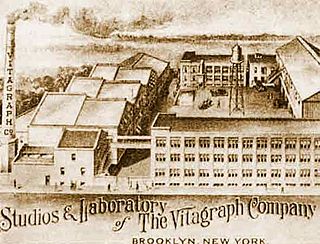
Vitagraph Studios, also known as the Vitagraph Company of America, was a United States motion picture studio. It was founded by J. Stuart Blackton and Albert E. Smith in 1897 in Brooklyn, New York, as the American Vitagraph Company. By 1907, it was the most prolific American film production company, producing many famous silent films. It was bought by Warner Bros. in 1925.
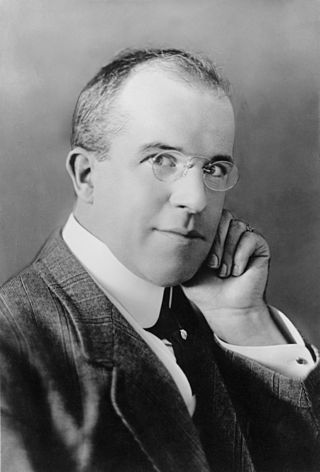
James Stuart Blackton was a British-American film producer and director of the silent era. One of the pioneers of motion pictures, he founded Vitagraph Studios in 1897. He was one of the first filmmakers to use the techniques of stop-motion and drawn animation, is considered a father of American animation, and was the first to bring many classic plays and books to the screen. Blackton was also the commodore of the Motorboat Club of America and the Atlantic Yacht Club.

The Selig Polyscope Company was an American motion picture company that was founded in 1896 by William Selig in Chicago, Illinois. The company produced hundreds of early, widely distributed commercial moving pictures, including the first films starring Tom Mix, Harold Lloyd, Colleen Moore, and Roscoe "Fatty" Arbuckle. Selig Polyscope also established Southern California's first permanent movie studio, in the historic Edendale district of Los Angeles.
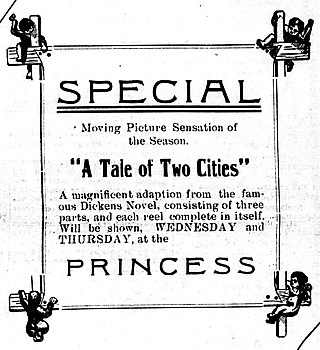
A Tale of Two Cities is a 1911 silent film produced by Vitagraph Studios, loosely based on the 1859 novel by Charles Dickens.

Cora Witherspoon was an American stage and film character actress whose career spanned nearly half a century. She began in theatre where she remained rooted even after entering motion pictures in the early 1930s. As Witherspoon’s career progressed, she carved a niche playing haughty society women or harridan housewives such as Princess Lina in Ferenc Molnár's 1928 play Olympia, or Agatha Sousè, W.C. Fields’ domineering spouse in the 1940 film The Bank Dick. John Springer and Jack Hamilton, authors of They Had Faces Then: Super Stars, Stars, and Starlets of the 1930s (1974), wrote that "Witherspoon was blessed with a face that might have been drawn by one of those cartoonists who specialize in dealing with the war between men and women."

Charles J. Richman was an American stage and film actor who appeared in more than 60 films between 1914 and 1939.

Wally Van was an American actor and film director of the silent era.
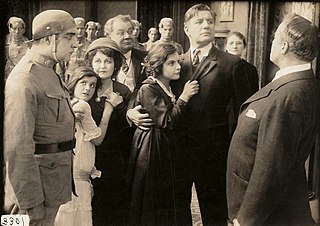
The Battle Cry of Peace is a 1915 American silent war film directed by Wilfrid North and J. Stuart Blackton, one of the founders of Vitagraph Company of America who also wrote the scenario. The film is based on the book Defenseless America, by Hudson Maxim, and was distributed by V-L-S-E, Incorporated. The film stars Charles Richman, L. Rogers Lytton, and James W. Morrison.

William Courtenay was a noted Broadway star and later film actor. He was born William Hancock Kelly. At age 19 in 1894, before his Broadway career took off, Courtenay appeared in Alexander Black's slide show Miss Jerry. This was a sort of alternative entertainment to a new device by Thomas Edison called a Kinetoscope à la moving pictures.

The Dawn of Understanding is a lost 1918 American silent Western comedy film produced by The Vitagraph Company of America and directed by David Smith. It stars Bessie Love in the first film of her nine-film contract with Vitagraph. It is based on the short story "The Judgement of Bolinas Plain" by 19th-century Western writer Bret Harte.

Wilfrid North, also spelled Wilfred North, was an Anglo-American film director, actor, and writer of the silent film era. He directed 102 films, including short films; acted in 43 films; and wrote the story for three films.
Charles Eldridge was an American stage and screen actor of the late 19th and early 20th centuries.
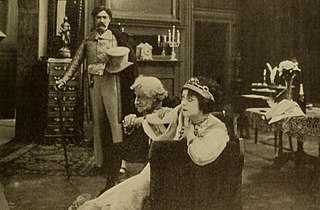
Vanity Fair is a 1911 silent film adaptation of William Makepeace Thackeray's 1848 novel of the same name. It was one of Vitagraph's first three reel productions, along with A Tale of Two Cities (1911).
A Reformed Santa Claus is a 1911 American silent black-and-white family-drama film starring Charles Kent and Helen Gardner.
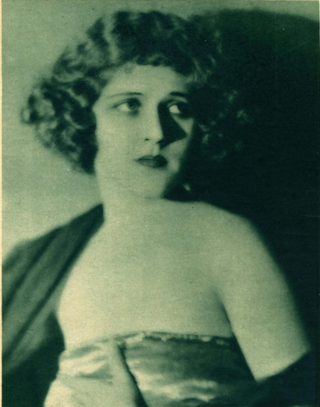
Arline Pretty was an American film actress of the silent era.
Leo Delaney was an American stage and silent film actor. He was born in Vermont and died in New York City, a victim of pneumonia. A popular early film actor, he began in 1907 with the Vitagraph Company in New York and spent the majority of his career with them.
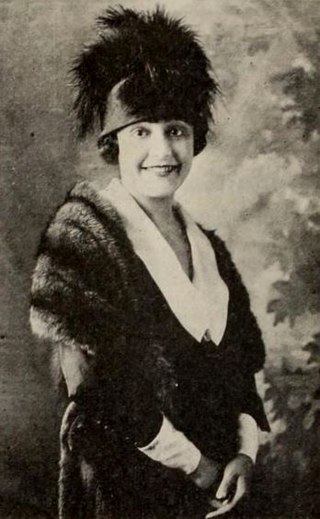
Betty Howe was an American actress in silent films.
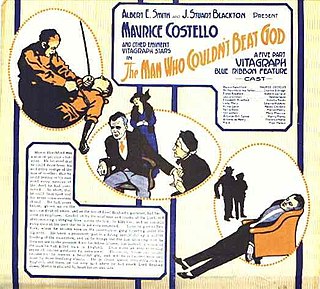
The Man Who Couldn't Beat God is a 1915 American silent film written by Harold Gilmore Calhoun and directed by Maurice Costello and Robert Gaillard. It stars Maurice Costello, Robert Gaillard and Mary Charleson.

The Wheels of Justice is a 1915 American silent film written by Edward J. Montagne, directed by Theodore Marston, and starring Dorothy Kelly, James Morrison and Louise Beaudet. It premiered in February 1915, before its wide release in August of the same year. It was met with mostly positive reviews.

Crooky is a 1915 American silent film written by Paul West, directed by C. Jay Williams, and starring Frank Daniels, Charles Eldridge and Harry T. Morey. It was Daniels screen debut. While initial reviews were polite, the film quickly disappeared from the trade press and Daniels' persona became critiqued in other feature comedies as overly broad or immoral. The original title was Crooky Scruggs, but during its theatrical run, the title was shortened to Crooky.
References
- ↑ "The Surprises of an Empty Hotel". American Film Institute. Retrieved September 17, 2021.
- ↑ "Yacht Dynamited in Taking of "Empty Hotel"". Motion Picture News. November 6, 1915. p. 51. Retrieved September 18, 2021.

- ↑ "Vitagraph ad:Personally Picked Program". Motion Picture News. January 8, 1916. p. 92. Retrieved September 18, 2021.
